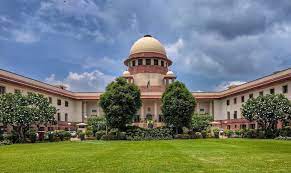Criminal Procedure Code, 1973 – Section 102(3) – Criminal Procedure – Duty of police officer to report seizure forthwith to the Magistrate – Implication of delayed reporting – Mandatory or directory nature of reporting obligation – Validity of seizure order – Consequences of non-compliance – Interpretation of “forthwith”. The Supreme Court addressed the question of whether delayed reporting of property seizure by police officers to the Magistrate, as mandated under Section 102(3) of the Criminal Procedure Code, 1973, would vitiate the seizure order. The Court noted conflicting precedents from various High Courts, with some holding that delayed reporting renders the seizure order invalid, while others viewed it as a mere irregularity.
After analyzing the legislative history and intent behind the provision, the Court concluded that the duty to report forthwith is not a jurisdictional prerequisite for exercising the power to seize. The validity of the seizure order can only be challenged on jurisdictional grounds or based on the merits of the case.
Furthermore, the Court clarified that the word “forthwith” must be interpreted to mean “as soon as may be” or “with reasonable speed and expedition,” depending on the circumstances of each case. While non-compliance may dent the veracity of the prosecution’s case, it does not invalidate the seizure order per se.
The Court overruled precedents holding otherwise and emphasized that the consequence of non-compliance should be determined based on proof of prejudice and explanation for the delay, to be adjudicated during trial. Additionally, the Court highlighted the need for appropriate departmental action against erring officials who fail to report seizures promptly.
In the instant case, where bank accounts were frozen based on delayed reporting, the Court held that the freezing order could not be reinstated. Instead, the accused were directed to execute a bond undertaking to deposit the withdrawn amount if convicted, ensuring the ends of justice were met. (Para 17)
SUPREME COURT OF INDIA
2024 STPL(Web) 352 SC
[2024 INSC 407]
Shento Varghese Vs. Julfikar Husen & Ors.
Criminal Appeal Nos. 2531-2532 of 2024 (@ Special Leave Petition (Crl.) Nos.10504-10505 of 2023)-Decided on 13-5-2024
https://stpllaw.in/wp-content/uploads/2024/05/2024-STPLWeb-352-SC.pdf







